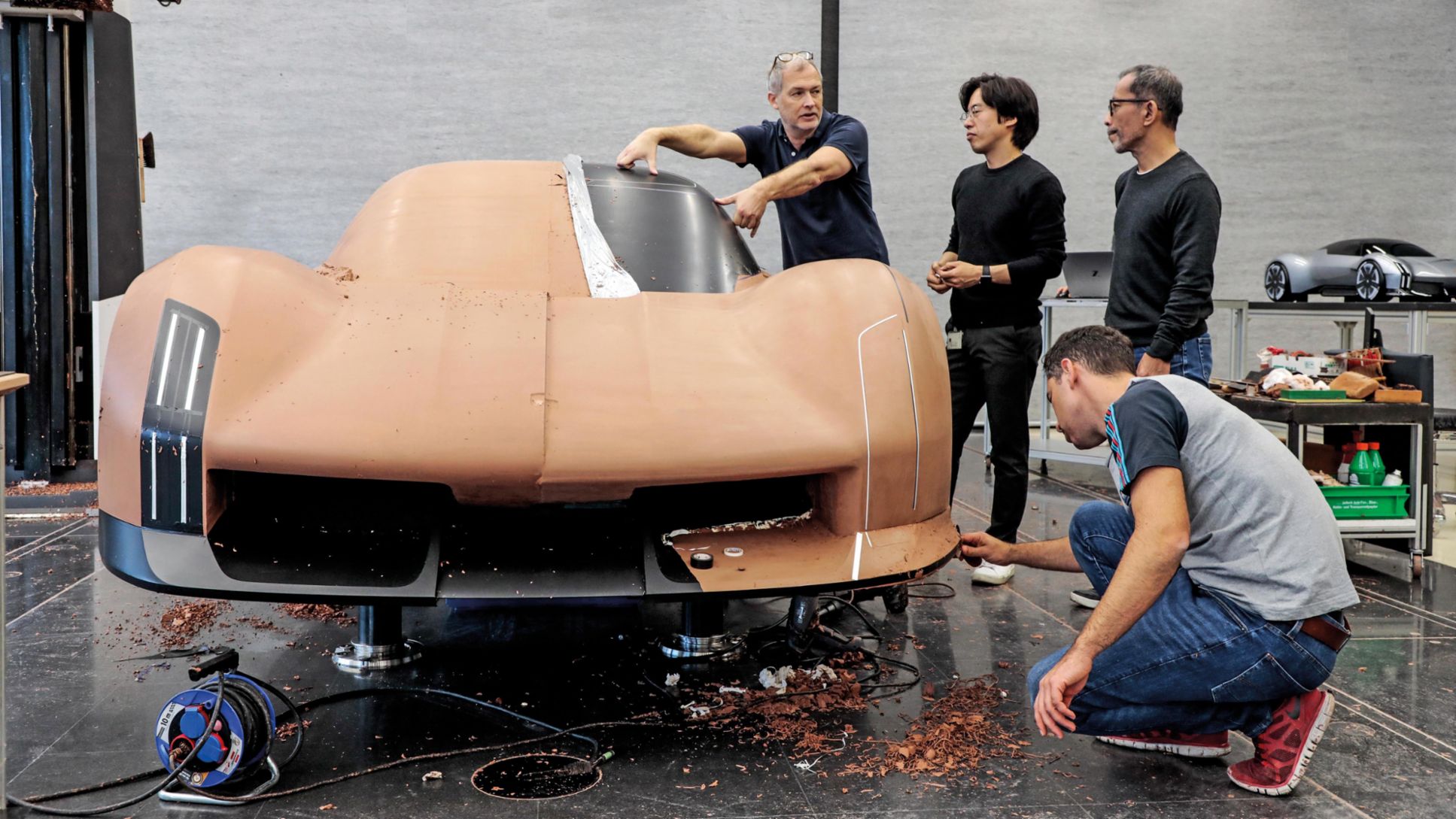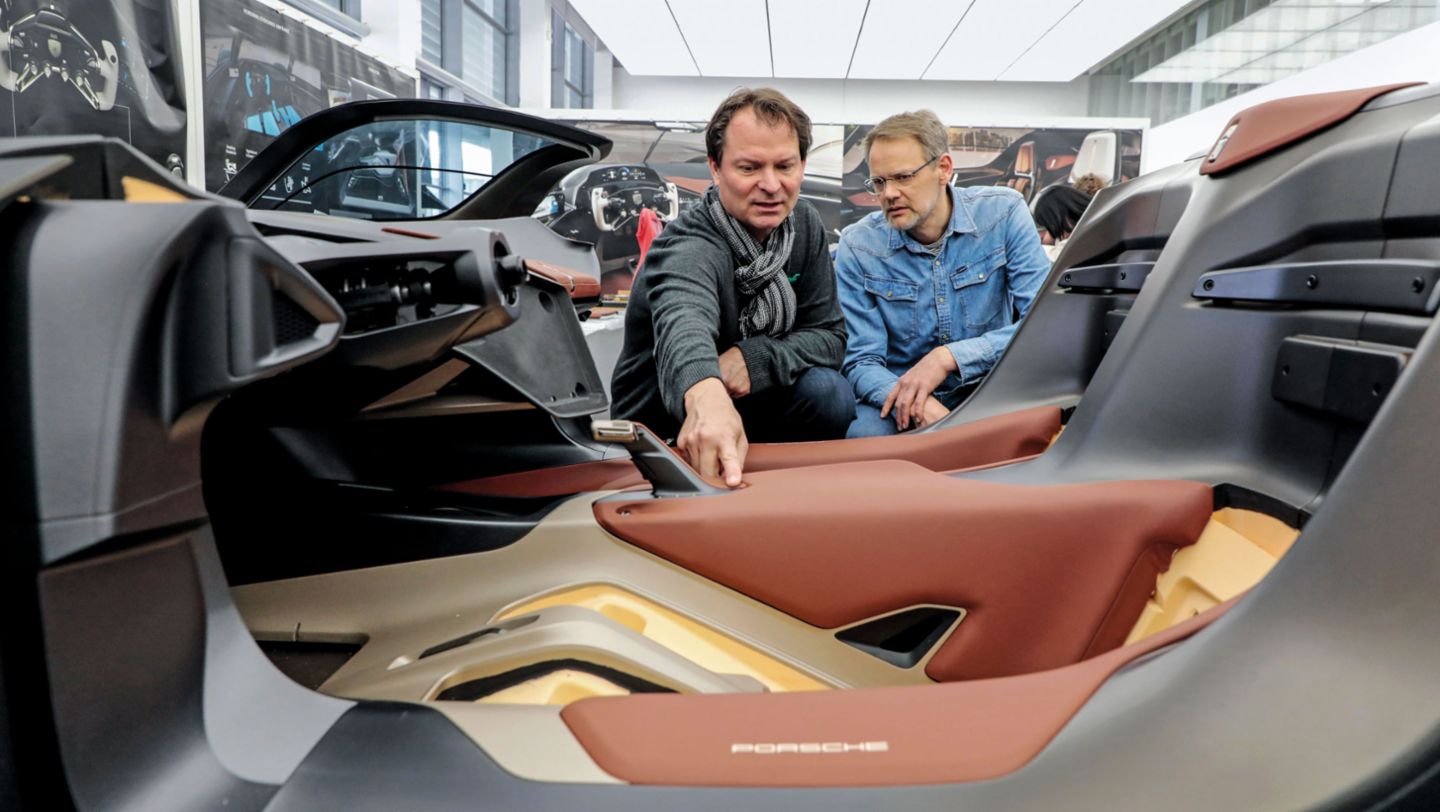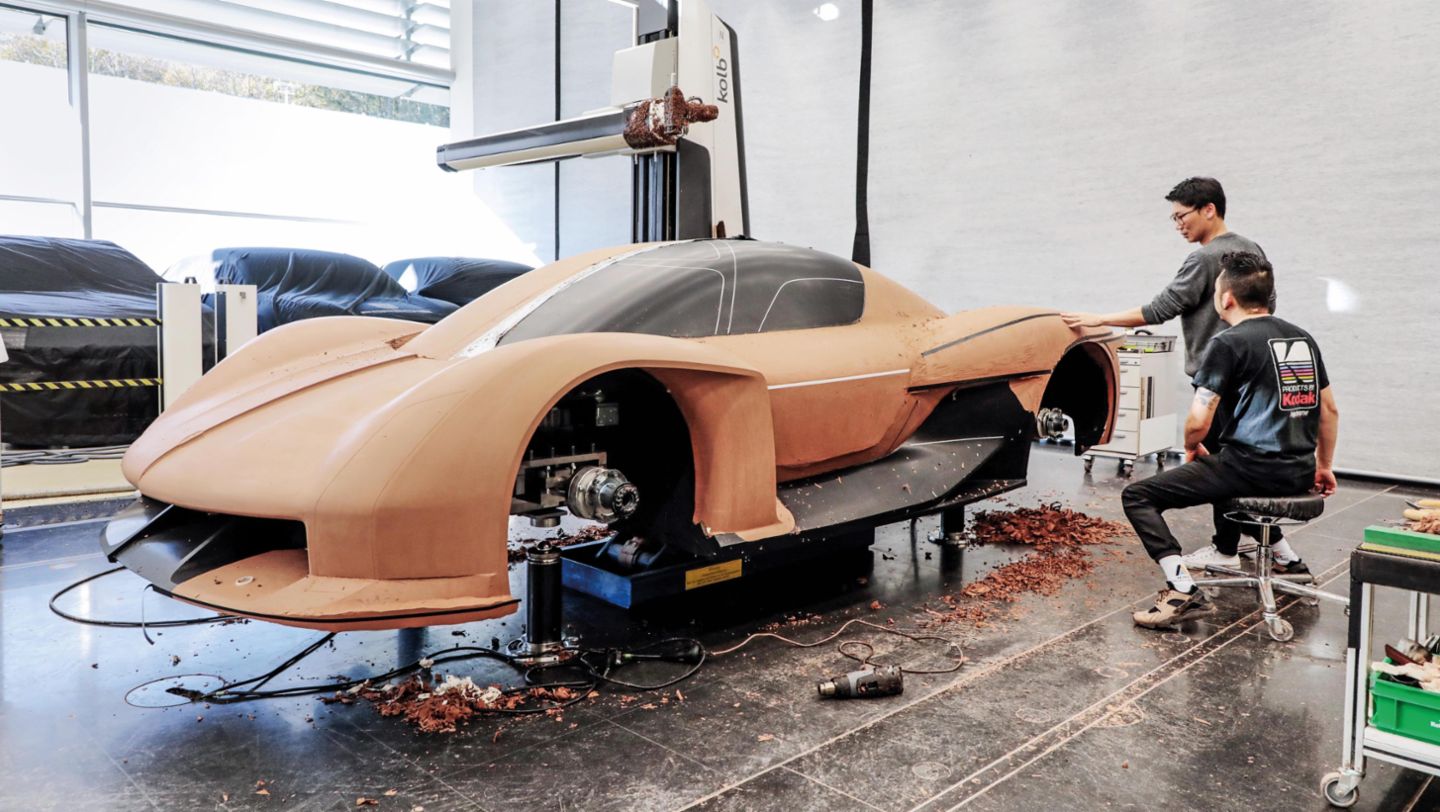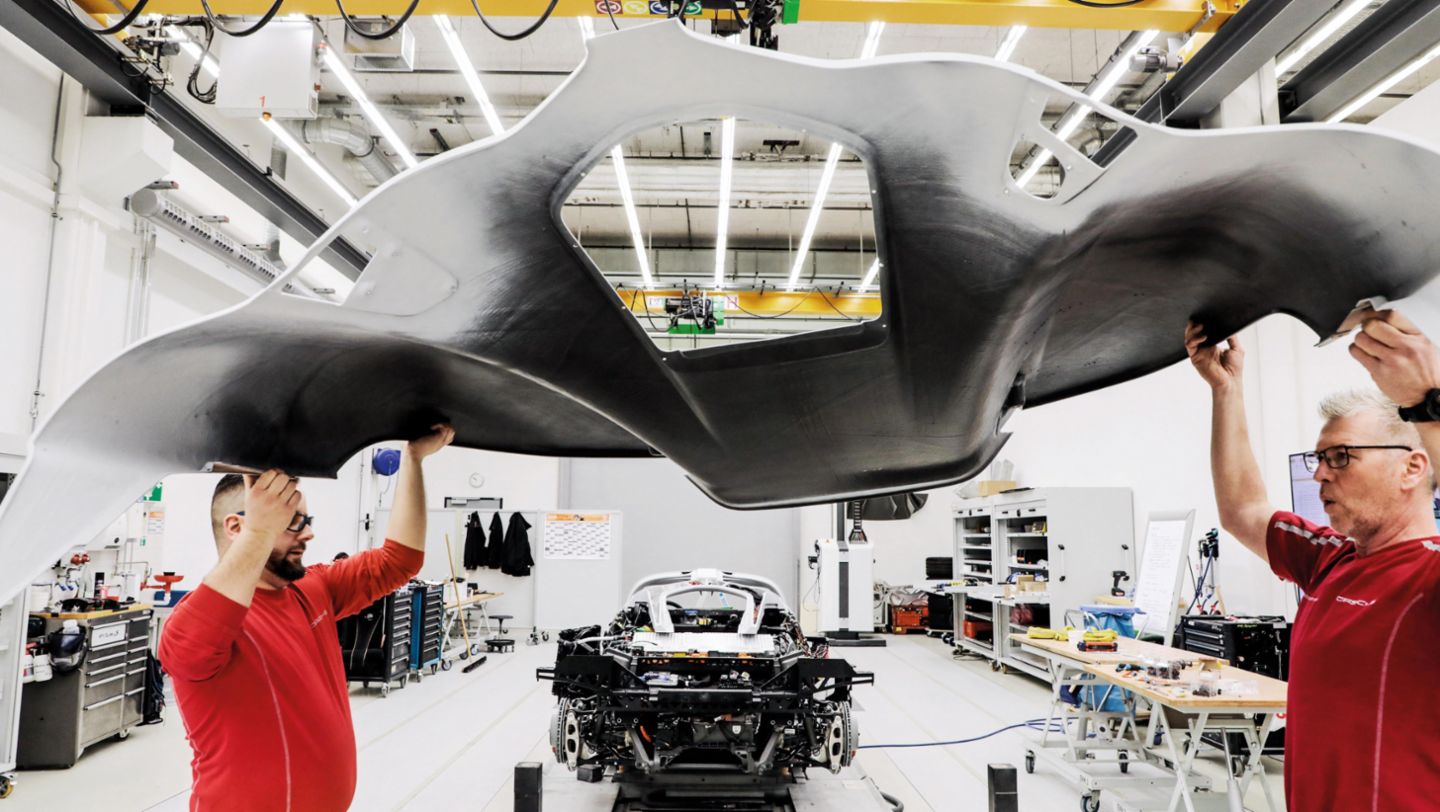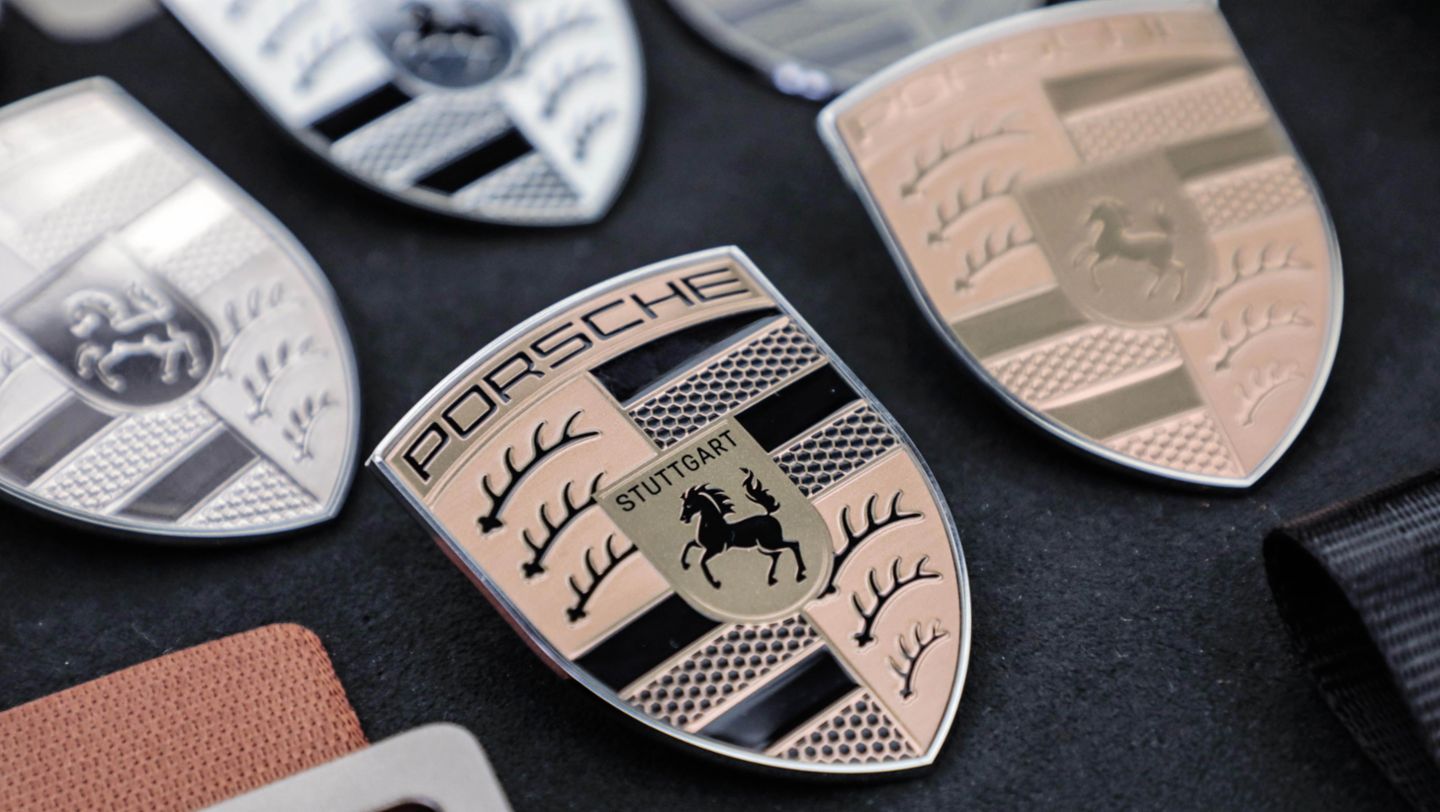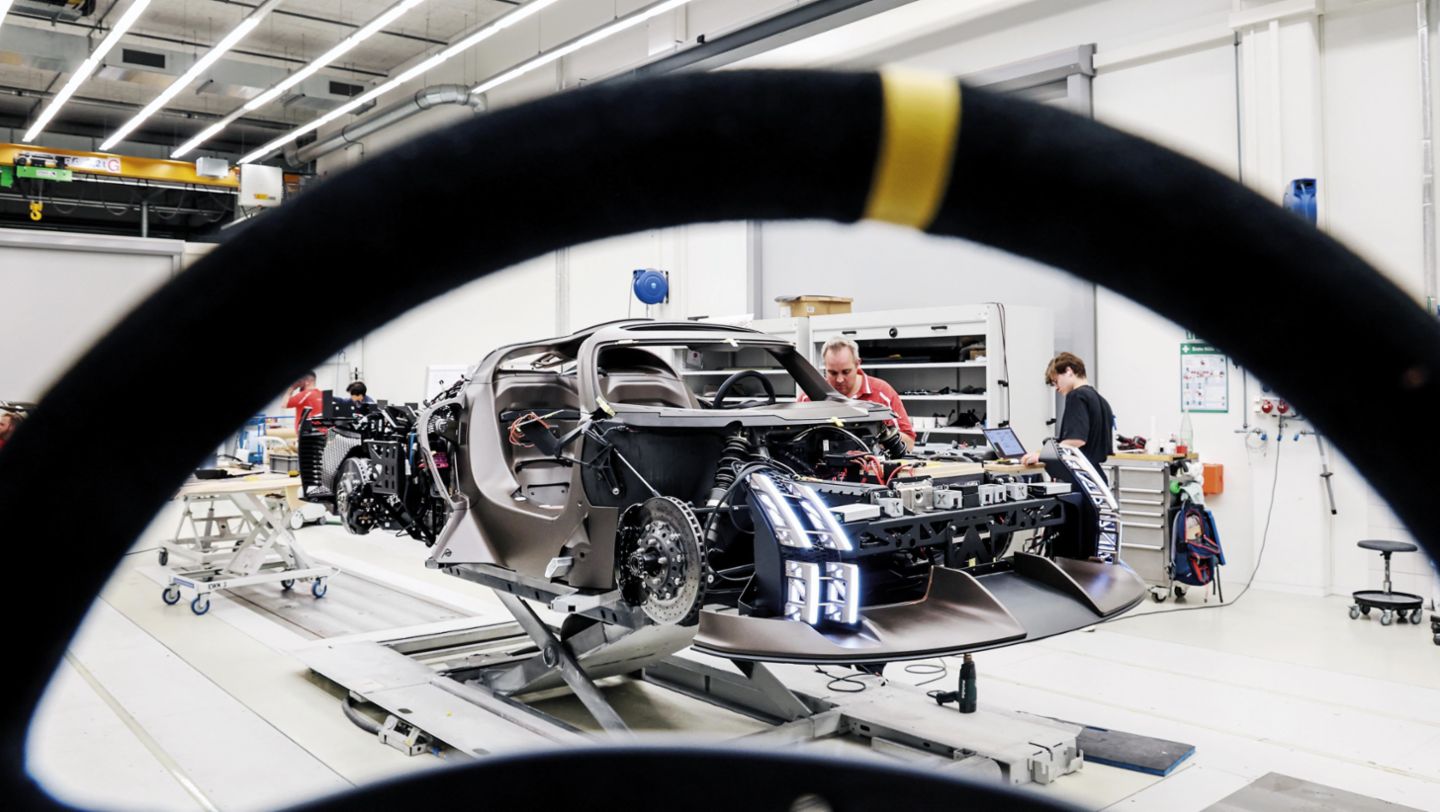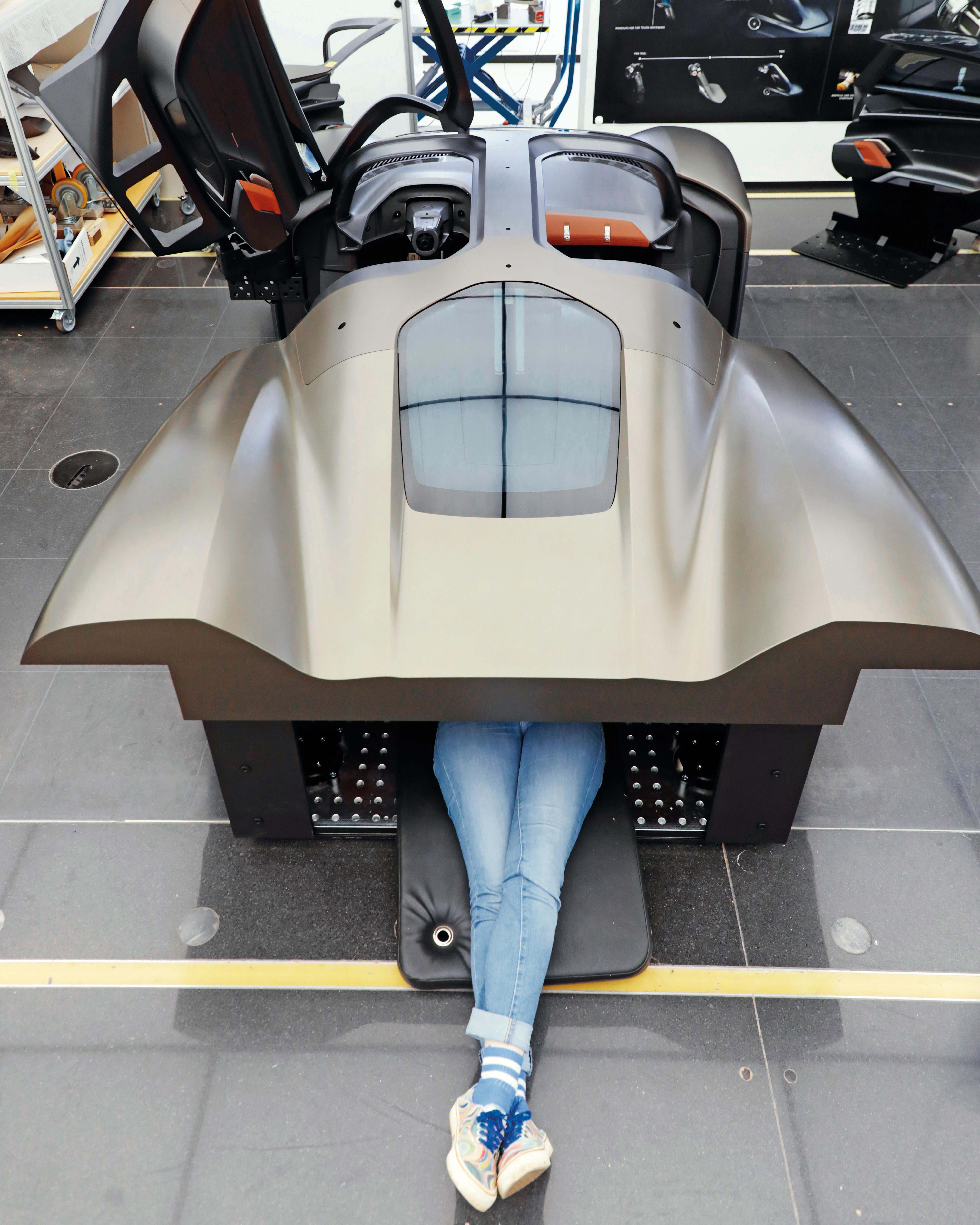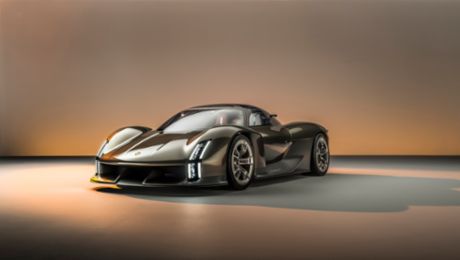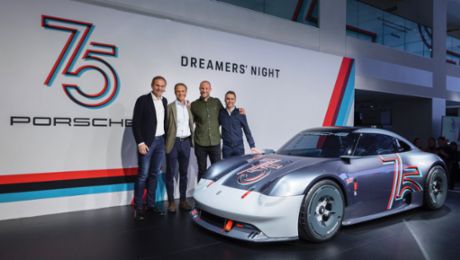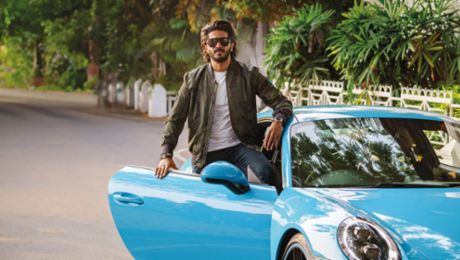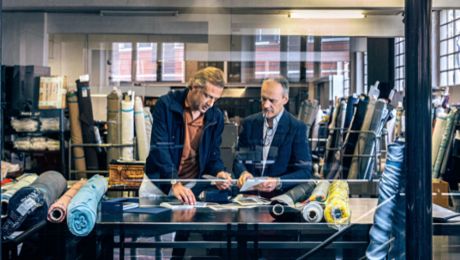“It’s a dream,” says Head of Design Michael Mauer, when asked about developing the next potential hypercar. “And a whole lot of stress.” He’s the picture of relaxation at the moment. The Mission X was just unveiled at the Porsche Museum in Stuttgart-Zuffenhausen – just in time for the sports car brand’s 75th anniversary. Now the invited guests are crowding around the lowered concept vehicle in Rocket Metallic. The internally developed exterior color is a novelty, as its brown tone darkens depending on your perspective. Just one of many highlights provided by this spectacular reinterpretation of a Porsche hypercar.
Former race car driver Mark Webber is talking shop with developers; Hollywood actor Patrick Dempsey is filming the concept car with his smartphone; and Chairman of the Supervisory Board Dr. Wolfgang Porsche is nodding in acknowledgement – he, too, is seeing the Mission X live and in color for the first time today. A few designers who have been working tirelessly on the concept car for the past year observe the action with a look of relief on their faces. Visually speaking, the hypercar is coherently proportioned and detailed in its design, as if it could go into production tomorrow.
Despite – or possibly because of – the Porsche practice of also technically implementing all concept studies, the project represented a marathon at sprint speed. “We basically worked on the concept car until the very last second,” says Mauer. “Your pulse is racing by the end, and you hope that everything runs and works.”
“I’m more than just a hypercar”
A decision was made for the project with the working title XS23 in mid 2022. The decisive question at the beginning: What would be the right symbol for the next 75 years of Porsche? It quickly became clear that it had to be the next hypercar in the ancestral line from the 959 to the Carrera GT to the 918 Spyder – with an all-electric drive. The objective was to keep the proportions as compact as possible despite the latest high-performance technology. To start with, the countless concepts and ideas from the past five years were reviewed and reevaluated. “It was important to us to provide the car with a clear visual message: ‘I’m more than just a hypercar. Motorsport is in my genes,’” says Mauer.
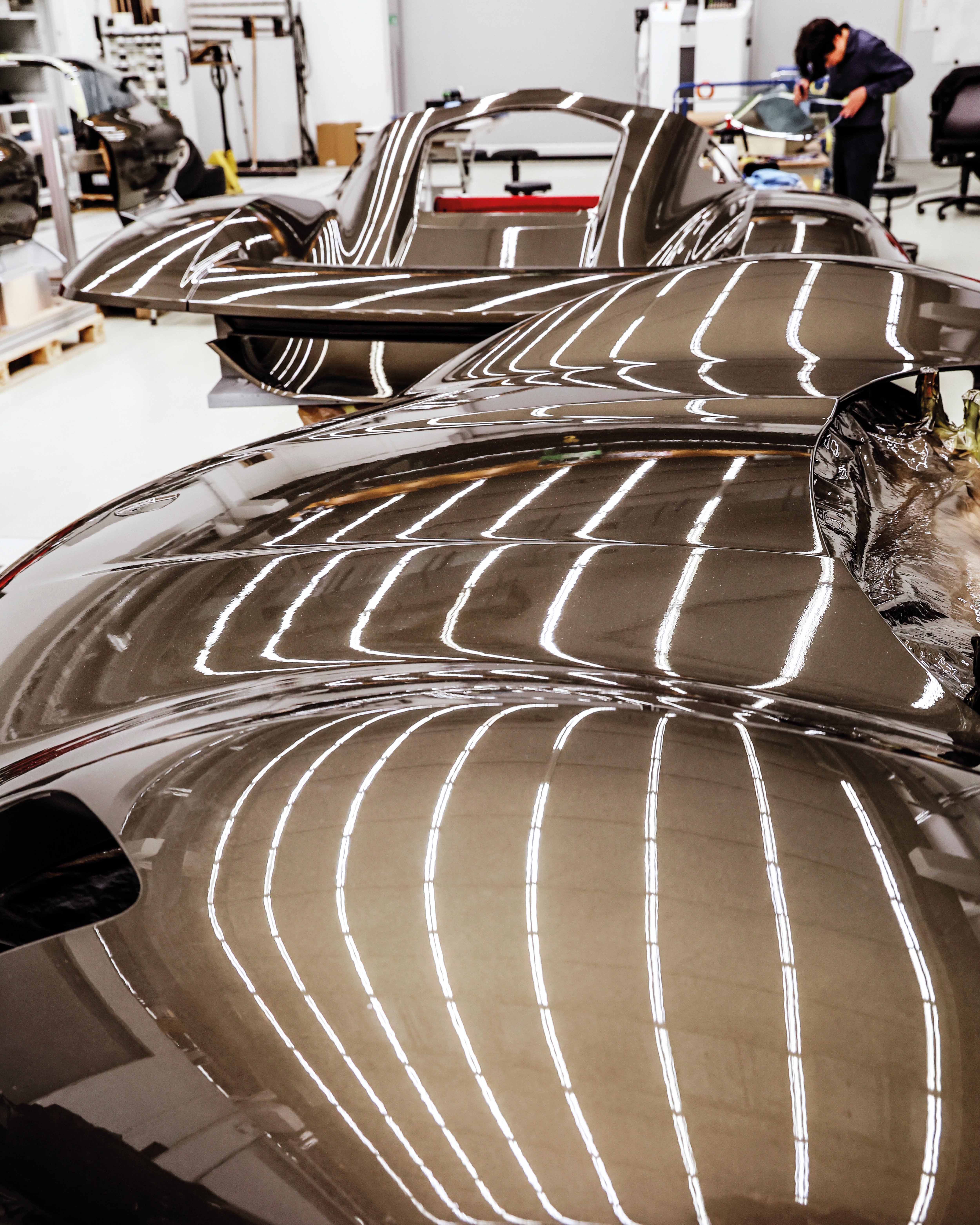
In addition to race cars such as the 919 Hybrid, which wrote history in Le Mans between 2014 and 2017, the designers also found inspiration in the great icons of the 1970s. For example, the lightweight glass dome with exoskeleton, the upward-swinging Le Mans doors, and the Daytona windows are reminiscent of the Porsche 917. “All of that is an echo of our glorious past in motorsport,” says Mauer. “And we’re fortunate enough to be able to draw on this amazing pool.” The headlights demonstrate a symbiosis between tradition and modernity. While the elements of the four-point light signature are usually positioned horizontally, they’re arranged vertically on the Mission X – inspired by historical Porsche race cars such as the 906 and 908.
The vehicle is an uncompromising hypercar, and yet the interior was not designed in the fashion of a functional race car cockpit. According to Mauer, you don’t need to prove to anyone visually that you can drive the fastest lap on Nürburgring. Rather than Alcantara, the interior features fabric that complements the color of the leather. “We focused on design quality, the materials, and the best possible integration of all the elements,” says the Head of Design. A harmonious overall composition was created in collaboration with colleagues from the Color & Trim department. The vehicle is painted in Rocket Metallic, a muted, reserved brown tone, rather than a signal color. Color schemes that are often used for luxury fashion brands and communicate subtle understatement. The lightweight carbon elements feature matching colors, so that they’re only visible at second glance. “The contrast between motorsport design and elegant, luxurious equipment generates excitement,” says Michael Mauer. “And excitement is one of our most important design principles.”
Qualities typical of Porsche
The large matching surfaces of the Mission X are impossible to miss. “Many modern hypercars are made up almost entirely of holes,” says Mauer, laughing. “In comparison, the Mission X has many smooth, uninterrupted surfaces.” The appearance is almost sculptural, monolithic – qualities typical of Porsche. Also typical is the attention to detail. The front lights, the light strips, the start-up button in the interior, and the “E” in the Porsche lettering all pulse when the electric sports car with the planned high-performance battery and 900-volt system architecture is charging.
When it comes to developing a concept car, it’s essential to be able to test, toss out, and optimize ideas without the pressure of series production. But this also comes with challenges of its own, explains Mauer: “The prototypes are built in our workshop. Most of the parts are specially produced. Sometimes they just don’t fit like they should. I don’t know how often we experimented with coloring the carbon parts until we were satisfied with the results.
Engineers, racing technicians, aerodynamics specialists, and experts in many other areas supported the project to ensure that the Porsche Mission X can be implemented at least theoretically. “This has allowed us to open a window to the future. And our understanding of sustainability is that even our concept cars can have sufficient impact on the brand’s future path.”
A dream car that could become a reality
If the concept study were to get the go-ahead, what would the next steps be? “We still need to work on the aerodynamics,” says Mauer openly. “We need to optimize the body to make it the fastest street-legal car on Nürburgring Nordschleife. There will be hundreds of hours of fine-tuning in the wind tunnel. The front of the car, including the headlights, is very advanced aesthetically, and even the interior is feasible with very little modification.” Mission X – a dream car that could become a reality.
It’s a little later on the evening of the anniversary show at Porscheplatz, and the guests have made their way into the museum, where the special exhibition has just opened. Michael Mauer is standing next to the concept car, which is slowly turning under the spotlights. He carefully inspects his team’s work once again and then shares a brief story: “We designers love stickers. At some point, the idea took on a life of its own, and we designed an animal sticker for each new concept car.
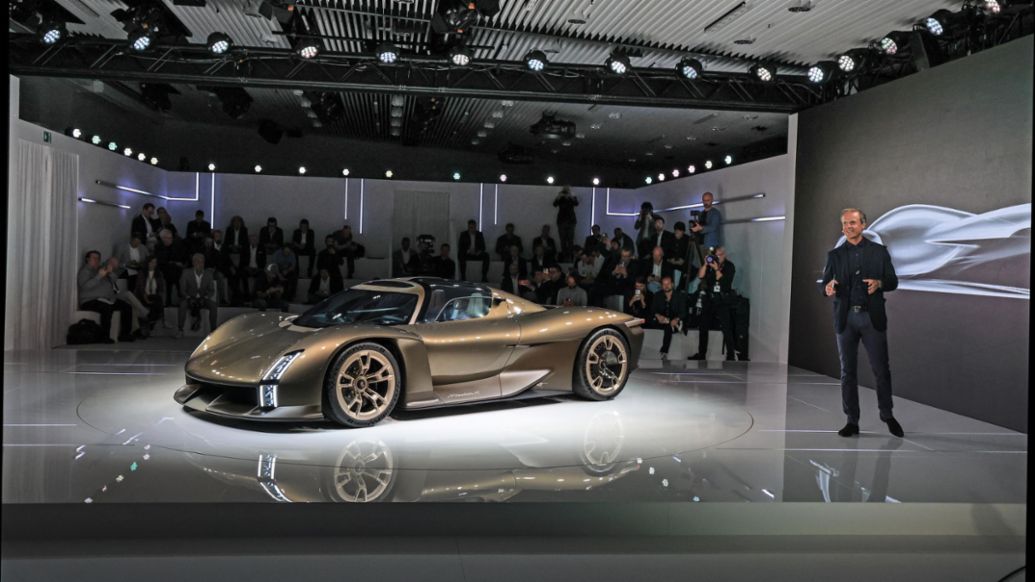
There’s a dinosaur sticker on the Porsche Vision 357 – as a humorous reference to the fact that we built a concept study with a combustion engine at the dawn of the electric age. The sticker on the Mission R was a wild boar, but it was removed just before the trade fair and is now on my company car.” Mauer points to a small, inconspicuous sticker in front of the rear left wheel of the Mission X – a cheetah, the fastest land animal and a silent hunter, in mid-jump.
Info
Text first published in the Porsche magazine Christophorus.
Author: Jan Baedeker
Photos: Christoph Bauer
Copyright: All images, videos and audio files published in this article are subject to copyright. Reproduction in whole or in part is not permitted without the written consent of Dr. Ing. h.c. F. Porsche AG. Please contact newsroom@porsche.com for further information.
